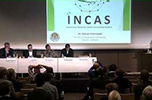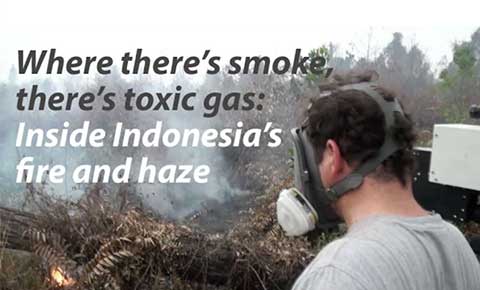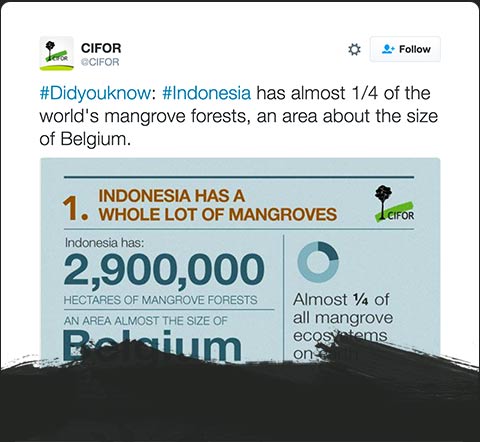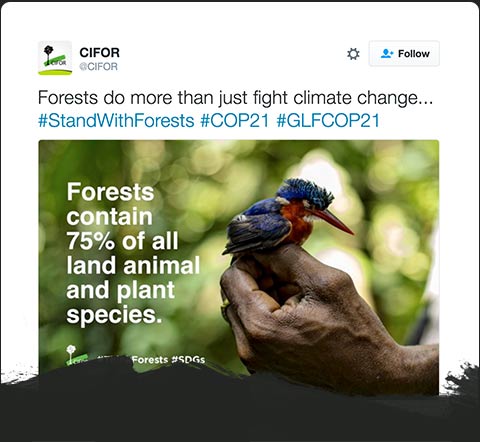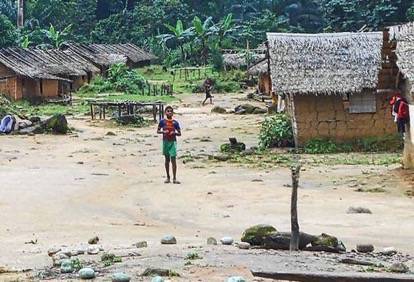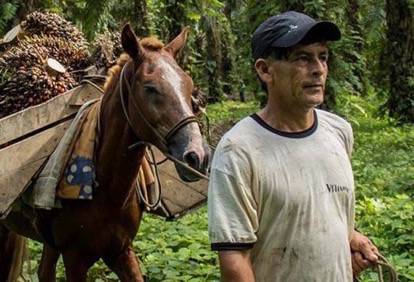Monitoring impact
Traditionally research organisations like CIFOR and other CGIAR centers focused heavily on research and publishing. Implementation and impact were the domain of downstream partners. No longer.
For the past five years, CIFOR has explicitly and deliberately moved away from this model, with researchers now actively seeking to have impact on policy and practice. CIFOR’s work in 2015 demonstrates the success of this approach. From influencing forest regulations in Peru, to informing changes to PFES policy in Vietnam, CIFOR’s research is being used to inform forest and other land-related policy throughout the tropical world.
The change in emphasis from publications to policy impacts demands new ways of measuring success. The joint assessment of the Global Comparative Study on REDD+, undertaken with the Overseas Development Institute and Royal Roads University, exemplifies this new approach. Its tailor-made collaborative assessment methodology is a first in the CGIAR system, and has stimulated interest outside the research community, with organizations like IUCN now showing interest in using the same process.
CIFOR continues to provide key research findings to support evidence-based policy making, as well as tools and methodologies to assess, and thereby increase, the effectiveness and impact of its research.
INCAS: Indonesia’s new carbon tracking system
CIFOR worked closely with technical staff from the Indonesian Ministry of Environment and Forestry to develop and pilot an MRV framework for the land use sector, including REDD+ activities. The framework was endorsed in 2015 as the Indonesian National Carbon Accounting System (INCAS), which was used to generate national results of net GHG emissions estimates for reporting to the UNFCCC at COP 21 in Paris.
Read about more outcomes and impacts at CIFOR.
CIFOR advances human well-being, environmental conservation and equity by conducting research to help shape policies and practices that affect forest landscapes in developing countries. CIFOR is a member of the CGIAR Consortium. Our headquarters are in Bogor, Indonesia, with offices in Asia, Africa and Latin America.
CIFOR leads the CGIAR Research Program on Forests, Trees and Agroforestry.
foreststreesagroforestry.orgCIFOR is also a member of the CGIAR Research Program on Climate Change, Agriculture and Food Security (CCAFS).
ccafs.cgiar.orgFlagship projects
Partners and processes
In 2015, CIFOR and its stakeholders benefited from:
-
144
-
85
- 33
- 33
-
29
-
35
CIFOR and its partners contribute to the following global processes, frameworks, panels and conventions:

Publications
Demand from stakeholders for CIFOR’s research grew at an unprecedented pace this year. In 2015 we disseminated more than 62,000 knowledge products at events, meetings and on request.
25% increase from 2014
Analysis
-
DG’s column addresses new forest assessments, the World Forestry Congress, and more.
-
At the peak of Indonesia's peatland fires, our scientists went to the field to find clear answers to the haze issue.
-
CIFOR researchers untangle the issues around zero deforestation, dry forests, land tenure, satellite data and more.
Numbers
77% increase compared to 499,000 views in 2014
127% increase compared to #GLFCOP20 tweets
CIFOR's research is designed to have a far reach, aiming to inform policy and effect real change on the ground. We foster a strong "impact culture" through:
A focus on gender
From planning research priorities to developing partnerships and communicating findings, gender is integrated throughout our work.
Capacity building
All of our research programs and projects include measures to strengthen both individual and institutional capacity.
Monitoring impact
We use sophisticated monitoring and evaluation techniques to gather feedback and improve our pathways to impact.
Each year, CIFOR's scientific findings reach more people through a communications strategy that combines journalistic approaches, social media and science communication.

 35,200
35,200
total Facebook likes, 24% increase

 37,733
37,733
Twitter followers, 41% increase

 7.5 million
7.5 million
photo views on Flickr, 56% increase

 564k
564k
cumulative video views on YouTube, 36% increase

 5227
5227
LinkedIn followers, 39% increase

 Top 5%
Top 5%
of Most-Viewed on SlideShare, with over 237k views, 42% increase

PHOTO
Selected photos

PHOTO
Selected photos

PHOTO
Selected photos

PHOTO
Selected photos

PHOTO
Selected photos

PHOTO
Selected photos

PHOTO
Selected photos

PHOTO
Selected photos

PHOTO
Selected photos

PHOTO
Selected photos

PHOTO
Selected photos

PHOTO
Selected photos

PHOTO
Selected photos

PHOTO
Selected photos

PHOTO
Selected photos

PHOTO
Selected photos

PHOTO
Selected photos

PHOTO
Selected photos

PHOTO
Selected photos

PHOTO
Selected photos

PHOTO
Selected photos

PHOTO
Selected photos

PHOTO
Selected photos

PHOTO
Selected photos

PHOTO
Selected photos

PHOTO
Selected photos

PHOTO
Selected photos

PHOTO
Selected photos

PHOTO
Selected photos

PHOTO
Selected photos

PHOTO
Selected photos

PHOTO
Selected photos

PHOTO
Selected photos

PHOTO
Selected photos

PHOTO
Selected photos

PHOTO
Selected photos

PHOTO
Selected photos

PHOTO
Selected photos

PHOTO
Selected photos

PHOTO
Selected photos

PHOTO
Selected photos

PHOTO
Selected photos

PHOTO
Selected photos

PHOTO
Selected photos

PHOTO
Selected photos

PHOTO
Selected photos

PHOTO
Selected photos

PHOTO
Selected photos

PHOTO
Selected photos

PHOTO
Selected photos

PHOTO
Selected photos

PHOTO
Selected photos

PHOTO
Selected photos

PHOTO
Selected photos

PHOTO
Selected photos

PHOTO
Selected photos

PHOTO
Selected photos

PHOTO
Selected photos

PHOTO
Selected photos

PHOTO
Selected photos

PHOTO
Selected photos

PHOTO
Selected photos

PHOTO
Selected photos

PHOTO
Selected photos

PHOTO
Selected photos

PHOTO
Selected photos

PHOTO
Selected photos

PHOTO
Selected photos

PHOTO
Selected photos

PHOTO
Selected photos

PHOTO
Selected photos

PHOTO
Selected photos

PHOTO
Selected photos

PHOTO
Selected photos

PHOTO
Selected photos

PHOTO
Selected photos

PHOTO
Selected photos

PHOTO
Selected photos

PHOTO
Selected photos

PHOTO
Selected photos

PHOTO
Selected photos

PHOTO
Selected photos

PHOTO
Selected photos

PHOTO
Selected photos

PHOTO
Selected photos




